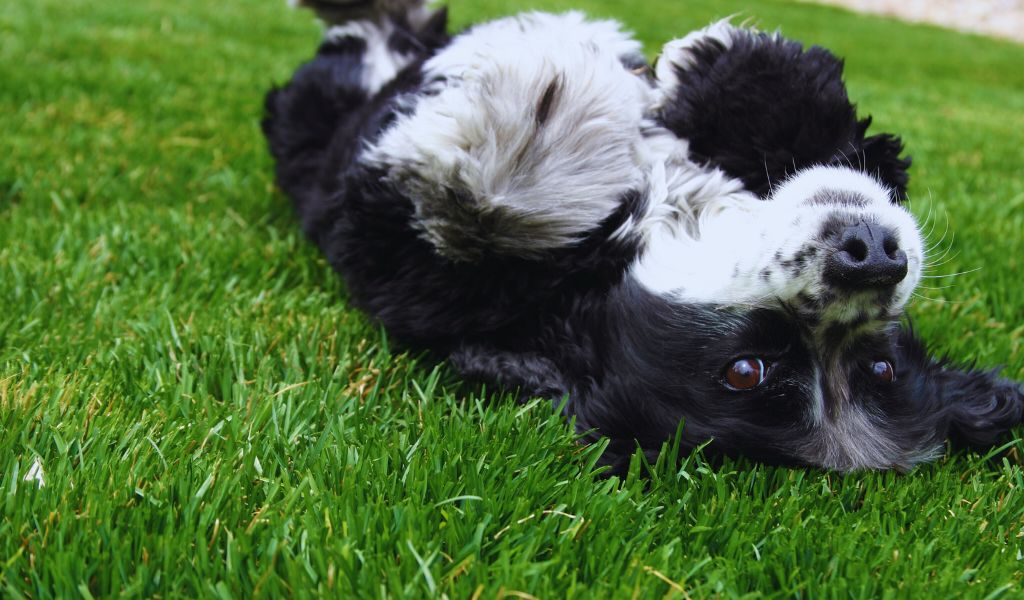Cocker spaniels are adorable and affectionate dogs that make wonderful companions for many families.
However, like many breeds of dogs, they can also have their own unique set of quirks and characteristics. One common question that many owners may have is whether or not Cocker spaniels snore.
It’s not unusual for dogs to snore, and Cocker spaniels are no exception. While not all Cocker spaniels will snore, it is a common trait in the breed. Just like people, dogs can snore for a variety of reasons, such as weight, sleep position, or even the shape of their airways. While it may be amusing to hear a dog snore, it can also be a nuisance for some owners, especially if the snoring is particularly loud or disruptive.
In this article, we will explore the reasons why Cocker spaniels snore, how it may be related to their health, and what owners can do to potentially alleviate any snoring issues.
So, if you’re a Cocker spaniel owner curious about your furry friend’s snoring habits, keep reading to learn more.

What causes Cocker spaniels to snore?
Cocker spaniels, like many other breeds, are prone to snoring due to a variety of factors. One common cause of snoring in these dogs is their anatomy.
Their short noses and elongated soft palates can obstruct their airways, leading to snoring during sleep.
Additionally, excess weight can also contribute to snoring in Cocker spaniels, as it can put extra pressure on their airways, causing them to collapse and result in snoring.
Other potential causes include allergies, respiratory infections, and dental issues.
All of these factors can lead to inflammation in the airways, making it harder for the dog to breathe and resulting in snoring.
However, it’s important to note that not all cases of snoring are a cause for concern.
But if the snoring is accompanied by other symptoms such as difficulty breathing or excessive tiredness, it’s important to consult with a veterinarian to rule out any underlying health issues.
The relationship between snoring and Cocker spaniel health
Snoring in Cocker spaniels can be indicative of respiratory problems such as brachycephalic syndrome, which occurs in dogs with short muzzles and can lead to difficulty breathing.
Additionally, snoring could be a symptom of obesity, which is common in Cocker spaniels and can lead to a range of health issues, including heart disease and joint problems.
It’s important to pay attention to your dog’s snoring patterns and to consult with a veterinarian if it seems excessive or abnormal.
Keeping an eye on your spaniel’s weight and ensuring they get enough exercise and a balanced diet can also help prevent snoring-related health issues.

Understanding the frequency of Cocker spaniel snoring
Like all dogs, Cockers snore due to the vibration of their soft palate and throat tissues as they breathe.
The frequency of snoring can be influenced by a variety of factors such as breed, age, and weight.
It is common for Cocker spaniels to snore when they are sleeping deeply or have a little extra weight on them.
However, if the snoring becomes excessive or is accompanied by other symptoms such as gasping for air or difficulty breathing, it could be a sign of an underlying health issue that needs to be addressed by a veterinarian.
Tips for managing Cocker spaniel snoring
If your Cocker is keeping you up at night with their noisy breathing, there are a few tips for managing their snoring.
First, make sure your dog is at a healthy weight, as overweight Cocker spaniels are more prone to snoring.
Additionally, try using a humidifier in the room where your dog sleeps to keep the air moist and reduce snoring.
You can also try changing your dog’s sleeping position, as sometimes elevating their head or having them sleep on their side can help decrease snoring.
Finally, consider having your dog examined by a veterinarian to rule out any underlying health issues that could be contributing to their snoring.
When to seek professional help for your Cocker spaniel’s snoring
If your Cocker is snoring loudly and frequently, it may be time to seek professional help.
While snoring can be common in dogs, especially those with short muzzles, excessive and persistent snoring can be a sign of an underlying health issue.
If you notice that your dog’s snoring has suddenly become louder or more frequent, or if it is accompanied by other symptoms such as labored breathing, restlessness, or coughing, it is important to consult a veterinarian.
These symptoms could indicate a respiratory issue or a potential obstruction in the airway.
Additionally, if your Cocker spaniel’s snoring is disrupting their sleep or yours, it may be worth seeking professional advice to improve their quality of life.
A veterinarian can conduct a thorough examination and recommend appropriate treatment options to address the snoring and any underlying issues, ensuring that your furry friend can breathe easily and sleep soundly.
Common misconceptions about Cocker spaniel snoring
One common misconception is that it is a sign of poor health or a respiratory problem.
In reality, snoring in Cocker spaniels is often just a result of their anatomy, particularly their short snouts and soft palates.
While excessive snoring can sometimes be a sign of a health issue, it is not always the case.
Another misconception is that all Cockers snore loudly and constantly.
While some may snore more than others, not all of them are constant loud snorers.
Additionally, many people believe that there is nothing that can be done to alleviate a Cocker spaniel’s snoring.
This is false, as there are steps that can be taken to reduce snoring, such as keeping them at a healthy weight, providing them with a comfortable sleeping environment, and addressing any potential underlying health issues.
Frequently Asked Questions about Cocker spaniels and snoring
Do Cocker spaniels snore?
Cocker spaniels are known to be prone to snoring, especially the English Cocker spaniel variety. This is mainly due to the structure of their palate and their adorable flat face. However, not all Cocker spaniels snore; it varies from dog to dog.
Is snoring normal for Cocker spaniels?
Snoring can be normal for dogs, including Cocker spaniels. It usually occurs during deep sleep and doesn’t necessarily indicate an underlying problem. However, if snoring is accompanied by difficulty breathing or other health issues, it’s essential to consult with a veterinarian to rule out any serious conditions.
What causes Cocker spaniels to snore?
Several factors contribute to Cocker spaniels’ snoring, including their individual anatomy, obesity, airway obstruction, and breed-specific characteristics. The breed’s face and soft palate can restrict airflow during sleep, leading to snoring.
Can snoring in Cocker spaniels be managed?
If your Cocker spaniel’s snoring is excessive and causes concern, there are several ways to manage it. Keeping your dog’s weight in check, providing a comfortable sleeping environment, and addressing any breathing issues through veterinary guidance can help alleviate snoring.
Are some Cocker spaniels more prone to snoring than others?
While snoring tendencies can vary from dog to dog, certain factors, including the physical characteristics of Cocker spaniels, make them more prone to snoring. Additionally, obesity, allergies, respiratory infections, and certain medications can also contribute to snoring in Cockers. To help reduce snoring in cocker spaniels, it is important to keep them at a healthy weight, provide regular exercise, and ensure a clean and allergen-free environment. If snoring persists, it is best to consult a veterinarian to rule out any underlying health issues.




